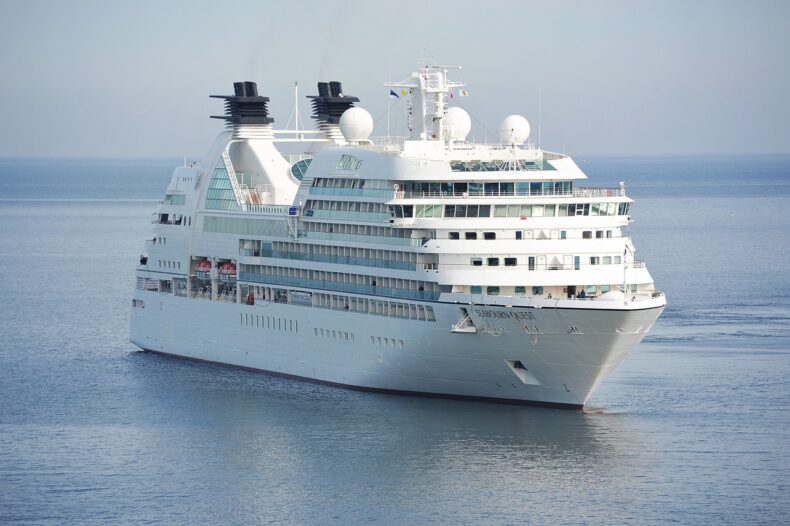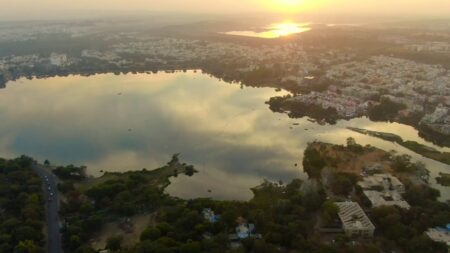In a significant ruling, the National Green Tribunal (NGT) has chastised the Madhya Pradesh government for causing extensive damage to vital water bodies and has ordered the immediate cessation of cruise ship operations and other motor-propelled boats in the ecologically sensitive Bhoj wetland. This verdict, issued on September 12, followed a plea submitted by a concerned Bhopal citizen, Subhash C Pandey, who raised alarm over the deteriorating condition of the Upper Lake and Lower Lake wetland. The NGT’s decision underscores the critical need for protecting these natural resources for the benefit of the people and the environment.
The MP Government’s Perspective
The Madhya Pradesh government had argued that cruise tourism was an integral component of the state’s tourism policy, which aimed at developing tourism facilities near large bodies of water. According to the government, the MP State Tourism Policy 2016 was designed to promote socioeconomic development and job creation, aligning with broader tourism objectives. Furthermore, it claimed that the waiting lounge and boarding jetty for the Bhopal cruise ship were temporary structures specifically designed to ensure no pollution of the lake, with a commitment to zero discharge of sewage and solid waste from the cruise ship.
Environmental Concerns
However, the NGT’s decision to halt cruise tourism in Bhopal was based on several critical environmental concerns. Firstly, the cruise ship, which operates from 10:00 a.m. to 7:00 p.m. on Sundays and holidays, has been found to emit noise levels above permissible limits. This is particularly problematic as the cruise’s route passes near the Van Vihar National Park, which falls within a silent zone, as reported by the Central Pollution Control Board (CPCB).
Moreover, the cruise ship is powered by two John Deere diesel engines, each with 125 horsepower, and three diesel storage tanks with a capacity of 90 liters. It consumes 28 liters of fuel daily. The vessel also relies on a 12.3 KVA diesel generator for backup power, which was found to lack sufficient measures to collect spillage of oil during refueling. Furthermore, inadequate ventilation for exhaust gases from the generator and engines was noted.
The CPCB investigation also uncovered that waste oil and used oil were not being properly managed, being disposed of illegally rather than sent to authorized recyclers. These findings raised significant concerns about the environmental impact of cruise tourism on the Bhoj wetland.
NGT’s Legal Ruling
The Madhya Pradesh government argued that the cruise ship in question was smaller in size than those typically regulated by the Water Act of 1974, the Air Act of 1981, or the Environment (Protection) Act of 1986. However, the NGT rejected this argument, asserting that cruise ships, regardless of size, were indeed subject to these environmental protection acts.
Inland water cruises in India are governed by the Inland Vessels (IV) Act of 1917, later updated by the IV Act of 2021, which introduced environmental protection regulations. The NGT affirmed that cruise ships carrying more than 12 passengers fell squarely within the ambit of these regulations. It reasoned that cruise boats or ships were floating assets engaged in commercial or industrial activities on inland waters, making them fully subject to environmental laws and regulations.
Conclusion
The NGT’s decision to halt cruise tourism in Bhopal’s Bhoj wetland sends a powerful message about the paramount importance of safeguarding our natural resources and ecosystems. While tourism can bring economic benefits, it must not come at the cost of environmental degradation and pollution. The judgment reaffirms that environmental laws and regulations apply universally and should be rigorously enforced to protect our fragile ecosystems.
As India continues to witness the growth of tourism in various regions, it is crucial that a delicate balance be struck between economic development and ecological preservation. The NGT’s ruling serves as a reminder that sustainable tourism practices are not only desirable but essential for the long-term well-being of our planet and future generations. It is now incumbent upon the authorities to take proactive measures to restore and protect the Bhoj wetland, ensuring that it remains a pristine natural treasure for generations to come.













